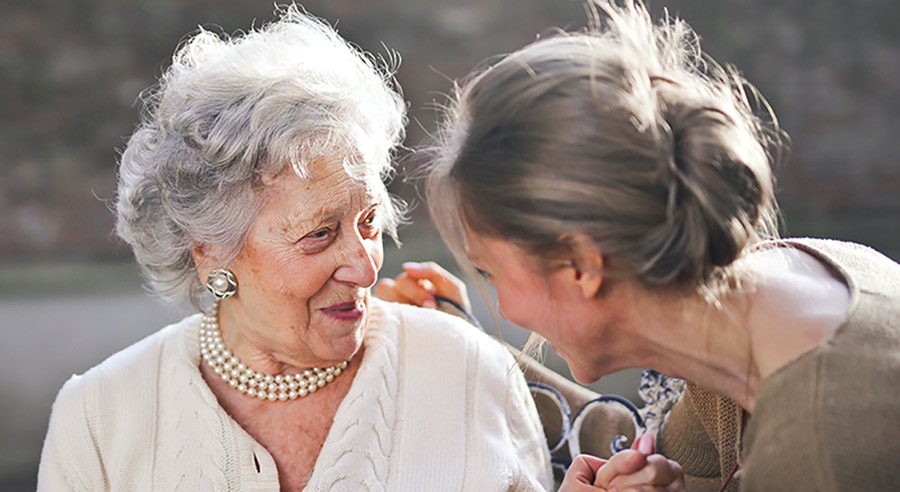How Home Care Providers Australia Can Improve Your NDIS Plan Monitoring and Support
How Home Care Providers Australia Can Improve Your NDIS Plan Monitoring and Support
Blog Article
Just How In Home Treatment Givers Address the Distinct Challenges and Psychological Needs of Households Looking For Assistance for Their Relatives
At home caregivers play a critical role in navigating the intricacies dealt with by households seeking assistance for their liked ones. By comprehending distinct family members characteristics and supplying tailored psychological support, these professionals not just address instant care demands yet likewise foster a setting of trust fund and open interaction. This approach is essential in taking care of the emotional strain commonly experienced by households, as it acknowledges their worries and verifies their experiences. However, the subtleties of this relationship expand past mere caregiving; the effects for household health and caregiving effectiveness warrant further expedition.
Comprehending Family Members Dynamics
Understanding household dynamics is critical for providing efficient at home care, as each family operates within an one-of-a-kind set of communications and partnerships. These dynamics encompass various aspects, consisting of interaction designs, functions, and class structure that affect just how treatment is provided and received. The caretaker has to identify these variables to make certain that treatment strategies align with the family members's values and assumptions.
Various families may display distinctive patterns of interaction, such as collective approaches or hierarchical frameworks. As an example, in some families, a main decision-maker might hold substantial influence, while in others, choices might be much more democratic. Understanding these patterns helps caregivers customize their strategies to fit the family members's particular needs.
Furthermore, social backgrounds play a vital role in shaping family dynamics. Caretakers must be culturally skilled, acknowledging and appreciating varied techniques and ideas that may influence care preferences.
Ultimately, a comprehensive understanding of family dynamics helps with boosted communication, fosters count on, and enhances the caretaker's capacity to sustain the family members successfully. By identifying the complex internet of obligations and partnerships, caretakers can develop an encouraging setting that promotes wellness for both the individual receiving treatment and the household all at once.
Providing Emotional Support
Offering emotional support is an important part of in-home treatment that significantly boosts the health of both the specific getting treatment and their member of the family. In the context of caregiving, psychological support includes energetic listening, empathy, and validation of feelings. Caretakers are educated to acknowledge the emotional struggles that families deal with, such as anxiousness, guilt, and seclusion, and to offer a caring visibility that minimizes these problems.
By cultivating open interaction, caretakers create a safe space for household participants to express their issues and fears. This discussion not just urges emotional release but also strengthens trust between the family and the caretaker. In addition, caretakers can use functional methods to assist households handle tension and promote resilience.

Ultimately, the emotional assistance supplied by at home caregivers improves the lifestyle for both clients and their families, promoting a more thoughtful and understanding caregiving setting. This alternative strategy makes sure that emotional demands are attended to alongside physical wellness considerations.
Taking Care Of Daily Care Tasks
Managing day-to-day care jobs is a crucial element of at home care that makes sure individuals receive the assistance they need to preserve their wellness and independence. Caregivers play an essential role in helping with tasks of daily living (ADLs), which consist of showering, clothing, grooming, and dish prep check here work. By handling these duties, caretakers help ease the emotional and physical problems that family members may deal with while taking care of their enjoyed ones.
Along with personal care, caretakers are additionally tasked with medication administration, guaranteeing that customers stick to suggested schedules and dosages. This oversight is essential for keeping health and avoiding damaging results from missed or incorrect medicines. In addition, caretakers often assist with movement, offering support for customers moving their homes, therefore reducing the danger of falls and improving total safety.

Fostering Open Interaction
Effective management of day-to-day care tasks often pivots on the top quality of communication between caretakers, clients, and their family members. Open interaction fosters a setting where issues, choices, and comments can be openly exchanged, making certain that care is customized to meet private needs. Caregivers need to prioritize routine check-ins with both clients and their households, promoting discussions that attend to any problems or adjustments in care demands.
Making use of various communication approaches-- such as in person meetings, phone telephone calls, and created updates-- can enhance understanding and supply family members with peace of mind. It's necessary for caretakers to actively listen, demonstrating empathy and regard for the psychological landscape of the family. Encouraging questions from family members can likewise assist make clear treatment strategies and reinforce the caregiver's commitment to transparency.
In addition, keeping open lines of communication enables caregivers to acknowledge and respond immediately to any type of changes in a customer's wellness standing or emotional well-being. This proactive technique not just reinforces the caregiver-client vibrant but also empowers families to participate actively in the care procedure. Eventually, cultivating open interaction is crucial for improving the high quality of in-home care and advertising a helpful atmosphere for all involved.
Structure Trust Fund and Relationships
Depend on is the cornerstone of successful in-home care, as it develops a foundation for purposeful relationships between caregivers, customers, and their families. Building this count on requires regular, clear interaction and an authentic commitment to the health of those entailed. Caregivers should demonstrate integrity with punctuality, adherence to care plans, and responsiveness to the demands and preferences of clients.
To cultivate depend on, caregivers should involve in energetic listening, making sure that households feel listened to and comprehended. This visit their website involves not just dealing with immediate problems however also preparing for future requirements, thereby encouraging households and improving their feeling of control. Developing rapport through shared experiences and respectful interactions can better strengthen these connections.
Furthermore, caretakers should be educated to acknowledge and address the psychological intricacies dealt with by family members. By showing compassion and compassion, they can relieve unpredictabilities and worries, enhancing count on. Normal updates and check-ins see post with relative can additionally enhance transparency, permitting them to feel involved and educated about their enjoyed one's care.
Eventually, developing trust fund and nurturing connections in at home treatment is a collective procedure that dramatically impacts the top quality of care offered, cultivating an encouraging environment that benefits everybody entailed.
Conclusion
In-home caretakers play an essential function in resolving the distinct difficulties and psychological demands of family members. By understanding household characteristics, providing emotional assistance, and cultivating open communication, caregivers boost the overall caregiving experience. Their ability to manage daily care tasks while developing count on and solid partnerships cultivates a helpful setting for customers and their families. Eventually, the thoughtful involvement of caretakers dramatically adds to boosted health and strength for those browsing the intricacies of caregiving.
Understanding family members characteristics is vital for offering effective at home care, as each family runs within a distinct set of partnerships and interactions.Offering psychological assistance is a necessary part of at home treatment that significantly boosts the wellness of both the private obtaining treatment and their family members. By taking on these duties, caregivers help ease the physical and emotional concerns that family members may encounter while caring for their loved ones.
Reliable management of day-to-day care tasks often hinges on the top quality of communication in between caretakers, clients, and their households - ndis plan manager.Trust is the foundation of effective in-home care, as it develops a structure for meaningful connections in between caregivers, clients, and their households
Report this page